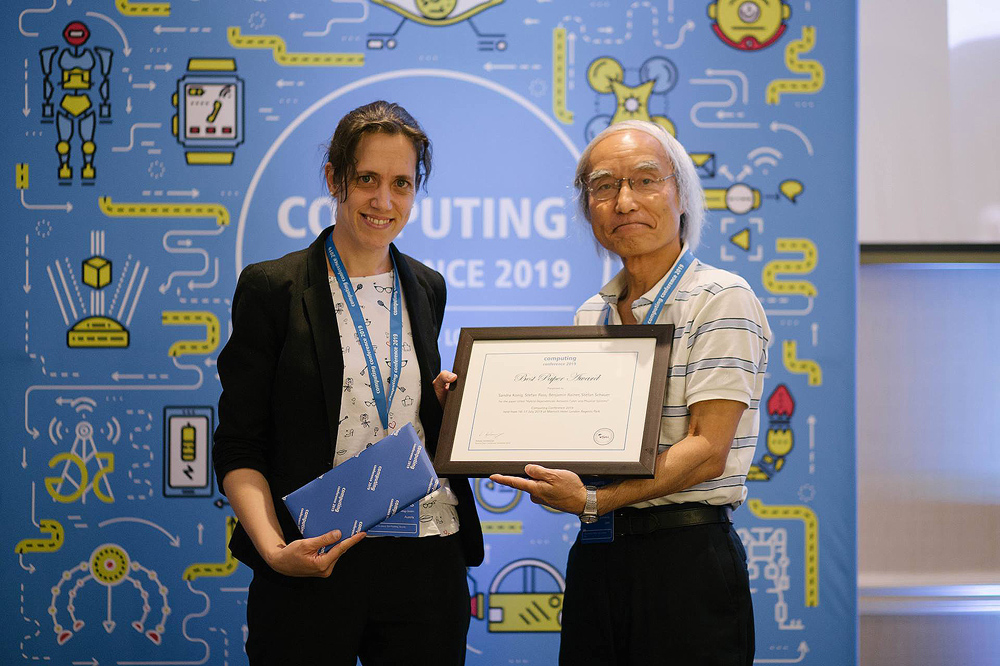At the Computing Conference 2019 in London, the AIT experts Sandra König, Stefan Rass, Benjamin Rainer and Stefan Schauer were awarded the Best Paper Award for their paper entitled "Hybrid Dependencies Between Cyber and Physical Systems". The awarded paper was chosen from a total of 168 accepted papers. Sandra König, AIT Scientist at the Center for Digital Safety & Security, accepted the award on behalf of the team.
Sandra König received her Bachelor and Master in Mathematics with a focus on Statistics at ETH Zurich and her PhD in Mathematics with distinction at Alpen Adria University Klagenfurt. Working for AIT since 2014, her main focus lies on probabilistic models and game theory. Currently she is involved in several national and international projects focusing on cascading effects and interdependencies among critical infrastructures as well as game theoretic approaches for risk management.
Interview with Sandra König at the Computing Conference 2019 in London, UK (July, 2019)
Paper Title: Hybrid Dependencies Between Cyber and Physical Systems
Abstract: Situational awareness is often a matter of detailed local information and proportionally limited view on the bigger picture. Conversely, the big picture avoids complicating details, and as such displays the system components as atomic “black boxes”. This work proposes a combination of local and global views, accounting for a common practical division of physical and cyber domains, each of which have their own group of experts and management processes. We identify a small set of data items that is required about the physical and cyber parts of a system, along with a high-level description of how these parts interoperate. From these three ingredients, which we call physical, cyber and hybrid “awareness” (meaning just knowledge about what is there), we construct a simulation model to study cascading effects and indirect implications of distortions in a cyber-physical system. Our simulation model is composed from coupled Mealy automata, and we show an instance of it using a small cyber-physical infrastructure. This extends the awareness from “knowing what is” to “knowing what could happen next”, and as such addresses a core duty of effective risk management. Manifold extensions to this model are imaginable and discussed in the aftermath of the definition and example demonstration.
More Information at https://link.springer.com/chapter/10.1007/978-3-030-22868-2_40



